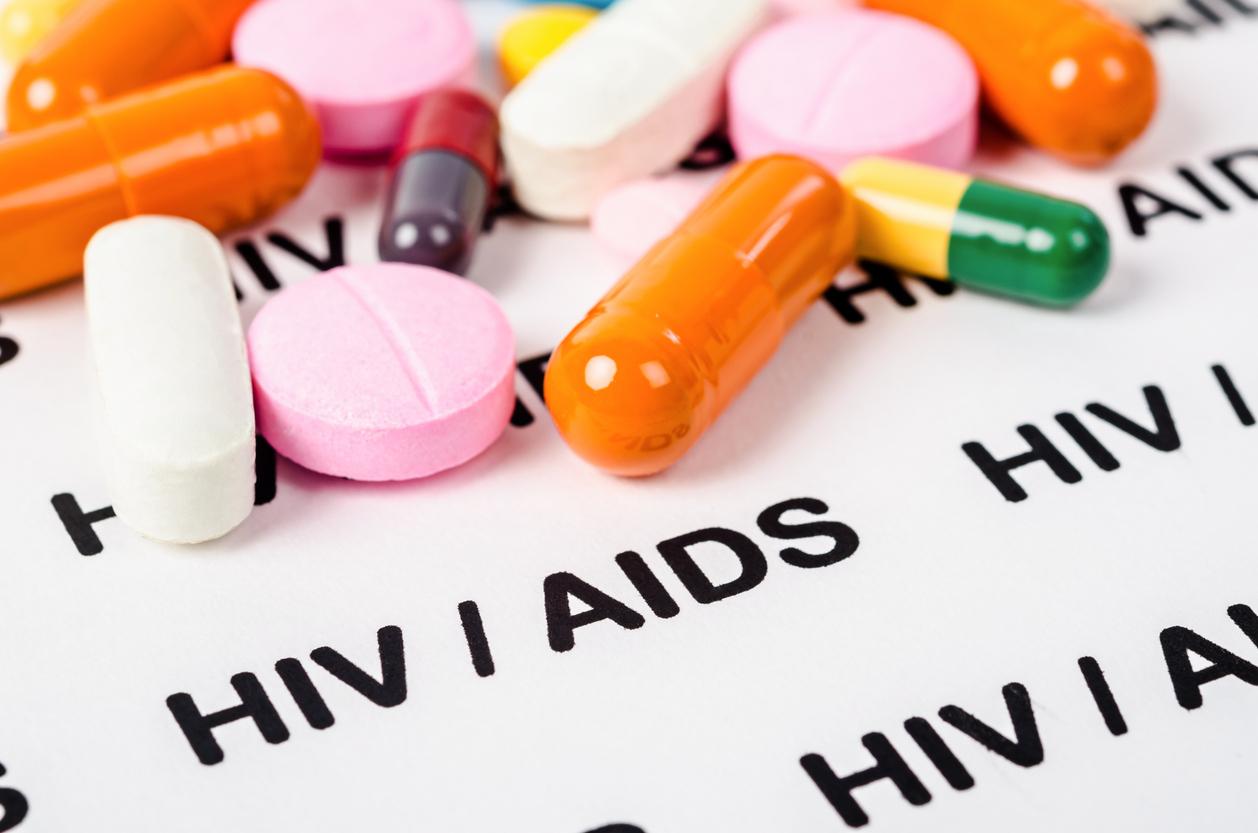Syphilis, chlamydiosis, herpes… the list of diseases transmitted by saliva or a simple rubbing of the mucous membranes is long and worrying. Why Doctor takes stock.

More than 376 million people contract a sexually transmitted infection each year throughout the world, which represents more than one million people per day. And, in summer, when people are generally more sexually active, the spread of STDs is exploding. “We observed a +24.7% increase in STI treatment prescriptions between the winter of 2017 and the summer of 2018”, explains in particular at Zava, European expert in teleconsultation for intimate health.
And if many people consider themselves out of danger because they use condoms during penetration, remember that many diseases are caught by a simple rubbing of the mucous membranes or by saliva. Indeed, the mouth is a sexual organ in its own right, recalls the French Dental Association. Below is the list of infections you can get without penetration.
HIV
The risk of getting AIDS through oral sex is very low, but it does exist. According to one study, among 102 seroconversions in a homosexual community,7.8% were attributed to unprotected genito-oral intercourse. The person giving fellatio is more at risk than their partner due to possible mouth ulcers or other gingivitis. In heterosexuals, however, the risk is almost non-existent.
herpes
A person having oral sex with another carrier of the virus can be contaminated in the mouth. Similarly, a person carrying the cold sore virus can transmit it to their partner who can then contract genital herpes (10 to 30% of cases of genital herpes are caused by cold sores). Whatever the mode of transmission, the first attack is always the most intense since in addition to blisters, vaginal discharge and inflammation of the genitals, it is accompanied by a flu-like state with body aches, headaches and fever.
We speak of the first “crisis” because, unfortunately, this virus which affects two out of ten people in France remains for life and can resurface several weeks or several years later. “Stress, fatigue, an infection or a hormonal change, for example during menstruation, are factors that promote new flare-ups (…) Flare-ups can occur every month, every six months or every five years” , explains Dr. Marc Perrussel, dermatologist venerologist, at Figaro.
Also, if you are in crisis, refrain from kissing (in the case of cold sores) or sexual intercourse: simple skin-to-skin contact, even without penetration, can be enough to transmit this extremely contagious virus. And if you are in a relationship and no longer use a condom, tell your partner about your condition.
The human papillomavirus (HPV)
While most types of HPV are benign and cause genital warts, some can cause cervical cancer or oropharyngeal. Several studies have also linked oral sex practices to throat cancer. To avoid any risk, the safest thing is still to get vaccinated. A Pap smear is also recommended for women every three years to detect any pre-cancerous or cancerous lesions.
Hepatitis B
Hepatitis B is a viral infection that attacks the liver. The virus is transmitted by contact with blood or during sexual intercourse, including oral relations. More than 250 million people suffer from a chronic infection by the hepatitis B virus and the latter is said to lead to approximately 780,000 deaths per year.
The infection begins with a silent incubation period of about two months. Afterwards, the patient may sometimes suffer from pain in the liver, anorexia, nausea and vomiting, extreme fatigue or jaundice of the skin and eyes. In rare cases, this can degenerate: this is called fulminant hepatitis. This often requires a liver transplant and is fatal in 90% of cases.
In order to prevent any risk, there are very effective vaccines against hepatitis B ensuring lasting immunity. A booster must be carried out every ten years.
Syphilis
While it had almost disappeared, the sickness of love of the accursed poets of the 19this making a comeback in Europeparticularly due to the increase in sex tourism. Treponema pallidum, the causative agent of syphilis, is an extremely contagious bacterium: 50% of mucosal contacts can transmit it. The chancre, primary manifestation of this potentially fatal disease, can be found anywhere in the oral sphere but mainly on the lips, palate, tongue and tonsils. It also appears painlessly on the male genitalia but can disappear very quickly while continuing to evolve. Thus, many boys are unaware of being infected, which promotes the spread of the disease.
After the second or third month, small pink spots may appear on the chest, sometimes leaving sequelae. We then speak of the famous “Venus necklace”. Immediately afterwards, a “clearing” alopecia behind the ears can occur. When the syphilis is recent (less than a year), an injection of penicillin is enough to make it disappear. Otherwise, it will take at least three to overcome it.
gonorrhea or gonococcal gonorrhea
With approximately 15,000 cases diagnosed in 2014, this saliva-borne infection is the most observed in urology offices. “In my practice, I see a lot of gonorrhea transmitted by fellatio”, testifies Dr. Gérard Cariou, urologist, at LCI. The first symptoms can appear between two and seven days after contamination. Men will experience a burning sensation when urinating, hence the nickname “hot piss” to describe the condition. In contrast, ladies show few symptoms. Gonorrhea may manifest as mild irritation of the vulva, vaginal discharge or urinary signs resembling cystitis. Most often, it is cured by an antibiotic called ceftriaxone, transmitted by injection.
Chlamydia
This disease can also be contracted by unprotected oral-genital intercourse. Very common among 16-24 year olds, it is formidable because it is often silent. However, it sometimes happens that certain symptoms appear between a week and two months after contamination. The patient will then feel burning when urinating. This STI can be treated very well with antibiotics (azythromicine or doxycycline). But if not treated in time, it can cause the tubes to become inflamed, obstruct them and ultimately lead to infertility.
Zika virus
In 2016, a young French woman was infected after performing oral sex on her companion returning from a trip to Brazil. Thus, this virus that is caught by a mosquito bite could be transmitted by oral sex.


.















